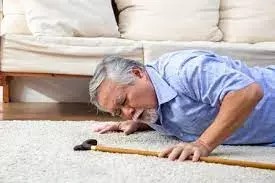- Home
- Medical news & Guidelines
- Anesthesiology
- Cardiology and CTVS
- Critical Care
- Dentistry
- Dermatology
- Diabetes and Endocrinology
- ENT
- Gastroenterology
- Medicine
- Nephrology
- Neurology
- Obstretics-Gynaecology
- Oncology
- Ophthalmology
- Orthopaedics
- Pediatrics-Neonatology
- Psychiatry
- Pulmonology
- Radiology
- Surgery
- Urology
- Laboratory Medicine
- Diet
- Nursing
- Paramedical
- Physiotherapy
- Health news
- Fact Check
- Bone Health Fact Check
- Brain Health Fact Check
- Cancer Related Fact Check
- Child Care Fact Check
- Dental and oral health fact check
- Diabetes and metabolic health fact check
- Diet and Nutrition Fact Check
- Eye and ENT Care Fact Check
- Fitness fact check
- Gut health fact check
- Heart health fact check
- Kidney health fact check
- Medical education fact check
- Men's health fact check
- Respiratory fact check
- Skin and hair care fact check
- Vaccine and Immunization fact check
- Women's health fact check
- AYUSH
- State News
- Andaman and Nicobar Islands
- Andhra Pradesh
- Arunachal Pradesh
- Assam
- Bihar
- Chandigarh
- Chattisgarh
- Dadra and Nagar Haveli
- Daman and Diu
- Delhi
- Goa
- Gujarat
- Haryana
- Himachal Pradesh
- Jammu & Kashmir
- Jharkhand
- Karnataka
- Kerala
- Ladakh
- Lakshadweep
- Madhya Pradesh
- Maharashtra
- Manipur
- Meghalaya
- Mizoram
- Nagaland
- Odisha
- Puducherry
- Punjab
- Rajasthan
- Sikkim
- Tamil Nadu
- Telangana
- Tripura
- Uttar Pradesh
- Uttrakhand
- West Bengal
- Medical Education
- Industry
Low-Dose Aspirin tied with increased Risk of Serious Falls and Fractures in Older People: JAMA

Low-dose aspirin fails to reduce the risk of fractures while increasing the risk of serious falls in older people according to a recent study published in the JAMA Internal medicine.
Falls and fractures are frequent and deleterious to the health of older people. Aspirin has been reported to reduce bone fragility and slow bone loss.
A study was conducted to determine if daily low-dose aspirin (100 mg) reduces the risk of fractures or serious falls (fall-related hospital presentations) in healthy older men and women.
This substudy of a double-blind, randomized, placebo-controlled trial studied older adult men and women in 16 major sites across southeastern Australia. The ASPREE-FRACTURE substudy was conducted as part of the Australian component of the ASPREE trial. Between 2010 and 2014 healthy (free of cardiovascular disease, dementia or physical disability), community-dwelling volunteers aged 70 years or older were recruited to participate in the ASPREE trial. Potentially eligible participants were identified by medical practitioners and trial personnel and were then sent a letter of invitation to participate. Interested participants were screened for suitability. Eligible participants with medical practitioner authorization and adherent to a 4-week run-in medication trial were randomized. Data were analyzed from October 17, 2019, to August 31, 2022.
Results:
- In total, 16 703 people with a median (IQR) age of 74 (72-78) years were recruited, and 9179 (55.0%) were women.
- There were 8322 intervention participants and 8381 control participants included in the primary and secondary outcome analysis of 2865 fractures and 1688 serious falls over the median follow-up of 4.6 years.
- While there was no difference in the risk of first fracture between the intervention and control participants aspirin was associated with a higher risk of serious falls
- Results remained unchanged in analyses that adjusted for covariates known to influence fracture and fall risk.
In this substudy of a randomized clinical trial, the failure of low-dose aspirin to reduce the risk of fractures while increasing the risk of serious falls adds to evidence that this agent provides little favorable benefit in a healthy, White older adult population.
Reference:
Barker AL, Morello R, Thao LTP, et al. Daily Low-Dose Aspirin and Risk of Serious Falls and Fractures in Healthy Older People: A Substudy of the ASPREE Randomized Clinical Trial. JAMA Intern Med. Published online November 07, 2022. doi:10.1001/jamainternmed.2022.5028
Dr. Shravani Dali has completed her BDS from Pravara institute of medical sciences, loni. Following which she extensively worked in the healthcare sector for 2+ years. She has been actively involved in writing blogs in field of health and wellness. Currently she is pursuing her Masters of public health-health administration from Tata institute of social sciences. She can be contacted at editorial@medicaldialogues.in.
Dr Kamal Kant Kohli-MBBS, DTCD- a chest specialist with more than 30 years of practice and a flair for writing clinical articles, Dr Kamal Kant Kohli joined Medical Dialogues as a Chief Editor of Medical News. Besides writing articles, as an editor, he proofreads and verifies all the medical content published on Medical Dialogues including those coming from journals, studies,medical conferences,guidelines etc. Email: drkohli@medicaldialogues.in. Contact no. 011-43720751


